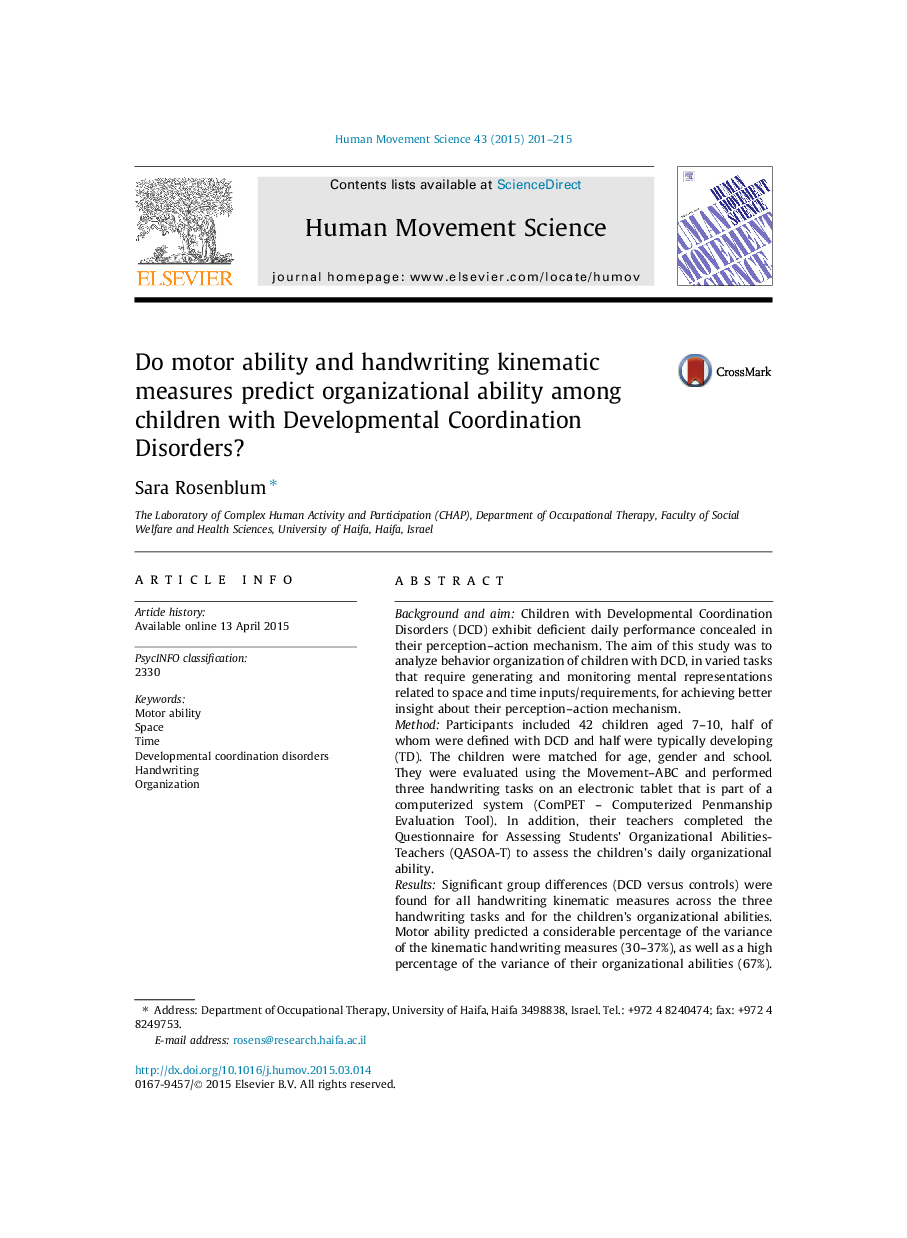| Article ID | Journal | Published Year | Pages | File Type |
|---|---|---|---|---|
| 928278 | Human Movement Science | 2015 | 15 Pages |
•Inability of children with DCD to mentally represent actions may manifest in their daily function.•Children with DCD performed significantly differently in handwriting and daily organization.•Motor ability predicted a considerable percent of children’s handwriting and organizational abilities.•Pen tilt’s CV added to the prediction percent of their organizational abilities.•Results support internal modeling deficits related to space and time as a possible underline mechanism among children with DCD.
Background and aimChildren with Developmental Coordination Disorders (DCD) exhibit deficient daily performance concealed in their perception–action mechanism. The aim of this study was to analyze behavior organization of children with DCD, in varied tasks that require generating and monitoring mental representations related to space and time inputs/requirements, for achieving better insight about their perception–action mechanism.MethodParticipants included 42 children aged 7–10, half of whom were defined with DCD and half were typically developing (TD). The children were matched for age, gender and school. They were evaluated using the Movement–ABC and performed three handwriting tasks on an electronic tablet that is part of a computerized system (ComPET – Computerized Penmanship Evaluation Tool). In addition, their teachers completed the Questionnaire for Assessing Students’ Organizational Abilities-Teachers (QASOA-T) to assess the children’s daily organizational ability.ResultsSignificant group differences (DCD versus controls) were found for all handwriting kinematic measures across the three handwriting tasks and for the children’s organizational abilities. Motor ability predicted a considerable percentage of the variance of the kinematic handwriting measures (30–37%), as well as a high percentage of the variance of their organizational abilities (67%). The coefficient of variance of the pen tilt added an additional 3% to the prediction of their organizational abilities.ConclusionsThe results of this study exhibited deficient ability among children with DCD in organizing their behavior in varied real-world tasks requiring generation and monitoring representation related to space and time. The significance of the results to understanding the performance mechanism and implication to the clinical field are discussed.
